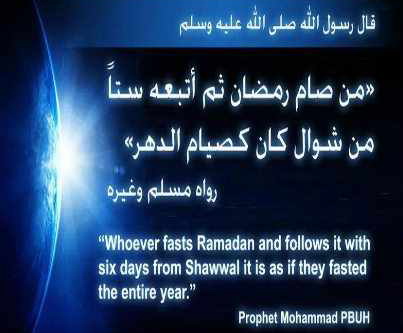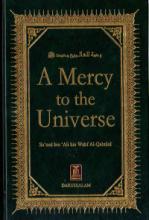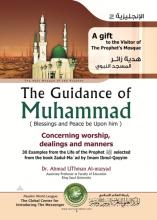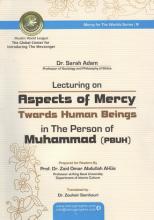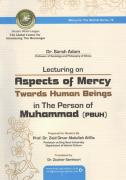The Prophet of Mercy Website
Muslim World League - Global Commission for Introducing the Messenger
I do not intend to probe into these motives, in respect of their values and effect, and whether they are consistent or not. However, it would seem that the fact that Prophet Muhammad, pbuh, has combined all the virtues we have briefly outlined is attributed to prophethood.This is because God Almighty is perfect and has all attributes of perfection, such as mercy, generosity, clemency, majesty, forgiveness, etc., and the Prophet is foremost among people to acquire such attributes of God Almighty. Thus the character of the Prophet is not tainted by mundane considerations, such as personal benefit, or his being affected by the environment, or the changes of circumstances.R. F. Bodley was aware of this fact, without mentioning its cause. Thus he said, “I doubt whether there existed any man other than Muhammad whose external circumstances have so greatly changed, without himself being changed.[18] Such consistency is easy to understand, when we remember that this greatness in all its aspects emanates from the spring of prophethood. Thus, although we conceded that before prophethood, Prophet Muhammad, pbuh, was a noble person, of honorable and lofty character, yet the emergence of his greatness in his gathering all virtuous attributes in a unique balance in himself, was on account of the prophethood, as we have pointed out.
The foregoing perhaps explains, as well, why the virtues of Prophet Muhammad, pbuh, were enduring, everlasting, present at all times and valid everywhere. They were not relevant only to his own epoch and were not confined to the categories for whom they were relevant, and were not engendered by his environment.These attributes and virtues were reflected in his actions more than in his words. This has made them accessible and familiar to people and capable of application.”After a short break, Dr. Adam proceeded with her lecture, but having seen new faces in the hall that she may not have noticed at the beginning of the lecture, she said, “I thank the honorable audience for this perseverance and patience. Allow me to welcome the new faces in particular. It seems to me that, if I am not mistaken, I see them for the first time.While welcoming them, I would like to draw their attention to the fact that our lectures are an interconnected series. Those who attend only some of them may not form an integrated conception of the subject we are dealing with. However, there are several means of making up.”
Dr. Adam was silent for a while; then she smiled to the audience and said, “I am thinking of availing you with the papers I am using, or at least those that contain texts and figures.” The audience rejoiced at this proposal, but she cautioned, “My proposal does not mean at all that you can dispense with attendance, which is undoubtedly an optional matter, as you well know.”“I have considered the attributes associated with the Prophet and found that they were quite numerous. Thus there is no sublime attribute in which he does not excel. This conclusion may have caused me some difficulty, because I am inclined to highlight an attribute that distinguished the Prophet, among all the attributes, though we have admitted in a previous lecture that they are all a characteristic of him. But what I mean, here, is an attribute that was more conspicuous than others.“If anyone should ask why look for one particular attribute to discuss, I say that our approach is to trace, document and analyze information, which takes quite a lot of effort and plenty of time. Hence, it would not be possible to consider all the attributes of Prophet Muhammad pbuh. Moreover, the aim of these lectures is to determine one particular attribute, if possible, which, if mentioned, Prophet Muhammad, pbuh, is remembered, and if he is mentioned, then such attribute comes to our mind as well.
“I was expecting – on the basis of the exposition in the previous lecture – that I will be able to put my finger on such an attribute. I am pleased to tell you that it seems to me that I have realized what I wanted. This attribute is that of mercy, whose exponents are seen encompassing humanity now and in the past. This is the attribute that is characteristic of Prophet Muhammad, pbuh, and which colored the majority of the other attributes. Following are more details and analysis, and I hope that I will not burden you.“I have followed three paths in searching for and grasping this attribute, and in setting it apart from the other attributes, namely:The First: Contemplative search in the Holy Qur’an, in which I hoped to find what I was looking for, and was not disappointed. Thus God Almighty has ascribed this attribute to Himself in many verses, and has derived from its root two of His names, which occurred in many verses. Examples are: Praise be to God, the Sustainer of the worlds, the Merciful the Compassionate (Al-FatiHah (1-2), and so in the verses: Verily God is Most Merciful, Most Compassionate to people. Another verse: Yet, thy Sustainer is limitless in His forgiveness, full of mercy (Al-Kahf, 58)
In the aforementioned verses, God Almighty has stressed his attribute of mercy and named Himself as Most Merciful, Most Compassionate, as a bounty and mercy to mankind. In other verses, He says: “Is it they who would portion out the Mercy of thy Lord. It is We Who portion out between them their livelihood in the life of this world; and We raise some of them above others in ranks, so that some may demand work from others. But the Mercy of thy Lord is better than the wealth which they amass. (Al-Zukhrof, 32).Some exegesists of the Qur’an said, “Wht is meant by Mercy here is the Prophethood and the Revelation. This is reflected in the following verse: “And thou hadst not expected the Book would be sent to thee except as a Mercy from thy Lord. Therefore, lend thou not support in any way to those who reject (Allah’s Message) (Al-Qassas, 86).“It is appropriate that I quote the view of an exegesist, to confirm this view and assure ourselves of his view. The great exegesist, Al-Shanqiti, said, ‘It is immediately apparent that what is meant by the Mercy of thy Lord is the Prophethood and the Revelation; referring to them as Mercy in the Qur’an occurs frequently.”[19]
Moreover, the Qur’an described Prophet Muhammad, pbuh, in the Qur’an as being characterized by the attribute of mercy, as follows: “Now has come unto you a messenger from amongst yourselves; it grieves him that you suffer, ardently anxious is he over you, to the believers is he most kind and merciful (Al-Tawbah, 128). Indeed Allah Almighty has considered Prophet Muhammad, pbuh, mercy itself: “We sent thee not but as mercy to all creatures (Al-Anbiyaa’, 107).This exposition must have impressed on you the dazzling harmony of these attributes. Thus he Merciful God has sent down a religion that abounds in mercy towards His creatures. It was natural for the one who preaches this religion to be a merciful person. Such person was Prophet Muhammad pbuh.I do not blame some who consider my words as impressionistic and emotional. I must point out that, before preparing these lectures, I had taken a neutral, unbiased attitude when such matters were brought up and I often used to remain silent unless I had evident proofs that corroborate my beliefs. I hope to succeed in this task and then I leave it to you to make your own judgment.This quality of mercy is appropriate for the realization of God’s purpose in sending the Apostle with this religion. Thus He has sent one who is innately merciful and, hence, he was a mercy from God to humanity in implementing His Shari’ah.[20]
In this context, I have noticed that God Almighty did not describe any of His prophets as merciful, except Prophet Muhammad, pbuh. Thus the Holy Qur’an has mentioned twenty four prophets and described them as possessing the most beautiful and perfect attributes and spoke highly of them wherever mention was made of them, but none of them was described as merciful, despite their other virtuous attributes.In His wisdom, God has vested Prophet Muhammad alone with the quality of mercy, although all God’s prophets were full of mercy in dealing with their people and were keen on planting faith in them. However, my talk here is about that very same attribute of mercy.The second path: it is related to a consideration of the life story of Prophet Muhammad, pbuh, of his sayings and guidance. But more details on this subject will be given in future lectures. What I would like to say here is that the attribute of mercy was manifested in all that emanated from the Prophet, be it his statements or deeds. It is the attribute manifested in all attributes and overwhelms and guides them. Prophet Muhammad, pbuh, used to manifest this attribute in every move and thing he did, as he said of himself, “I am but a gift of mercy,”[21] and I have no doubt whatsoever that when he made that statement he was thinking of God’s words: “We did not send thee but as a mercy to all creatures.” (Al-Anbiyaa, 107). The third path: it may look somehow cute and different from the preceding paths. Thus I have asked the students, to whom I teach the philosophy of ethics, to consider the attributes of Prophet Muhammad, pbuh, and that each of them should determine the attribute they think more apparent than others.
I was extremely pleased when about 60% had chosen the attribute of mercy. As to those who had chosen an attribute other than that of mercy, such as the attribute of modesty, or benevolence towards others, they had not gone far from the attribute of mercy, because this attribute is closely linked to the attributes they had chosen.Mercy is associated either with the motives of courage, as true mercy, which is not out of place, emanates only from those who possess courage. It is manifested in benevolence to others and treating them with modesty or forgiving them.This view is corroborated by the definitions given, by scholars, to this attribute, although I do not wish to address and follow these definitions critically in such lectures – as the definition which states that “Mercy is an emotional condition that is felt by those who are tender hearted, and is a beginning of benevolence.”[22] The clearest and the easiest definition is that: “it is a tenderness that a creature finds in his heart that prompts him to be sympathetic and benevolent towards others, to console them and to alleviate their suffering.”[23] It is the mercy that is appropriately applied as a description to a person.
However, I have come across a definition by Ibn Al-Qayyem, which says, “Mercy is an attribute that requires the bringing of benefits and interests to a person, though against his will. Such is true mercy. The most merciful of people is he who compels himself to protect your interest and guards you against harm.[24]Ibn Al-Qayyem has added another dimension to the concept of mercy, as you see, i.e. it means practicing mercy on those one loves, even if such one does not like that, as in the case of a doctor with his patient, particularly dentists. Every one of us has a story to tell about dentists.Before ending her lecture, Dr. Adam, contrary to her habit, asked the audience, after thanking them for their attendance and attentive listening, if they wish to make any suggestion or express a particular view point, before proceeding with her lecture and said, “But allow me to put forwards a suggestion before you, namely, that as of now we shall use, in talking about Prophet Muhammad, pbuh, the term ‘The Prophet of Mercy’ and I believe that you agree and your conviction will grow more and more.”A member of the audience stood up and said, “We appreciate this suggestion of yours. We had a discussion about the causes of misunderstanding the life story of the Prophet of mercy, pbuh, on the part of non-Muslims, particularly in Western countries in general, and we strongly hope to hear the view of our illustrious lecturer on the subject. We are encouraged to make this request by the fact that one who had participated with us in the discussion on the subject, told us that he had heard something on the subject, in one of your previous interventions. Dr Adam welcomed the suggestion and the audience took it that she had something to say on the matter. In fact, she told the audience that she would try her best to talk on the subject at the beginning of the next lecture.
------------------------------
[1] R.F. Bodley, The Apostle: Muhammad’s Life, p.6.
[2] Calude Cahen, History of the Arabs and Islamic Nations, v.1, p.40.
[3] For more details on this well-known dialogue, see SaHiiH Al-Bukhari, under the Section on how Revelation began, P 7.
[4] L. Durant, The Story of Civilization, v.13, p.22
[5] The Apostle in Fair Western ُ Eyes,” p. 146, borrowed from Hamilton’s book “Studies in Islamic Civilization, p.257.
[6] The Apostle in Fair Western Eyes, p.139
[7] Muhammad Kurd Ali, Islam and Western Civilization, v.1, p.67, Quoted from Monte’s book “The Present and Future of Islam.
[8] George Zaidan, Islamic Civilization, v.1, p.22.
[9] Reported by Bukhari in the Section dealing with those who tell lies about the Prophet, pbuh, Tradition No. 107.
[10] See The Encyclopedia Britannica, v.5, p.660, Ibid.
[12] Ibid., v.5, 660
[13] Muhammad Jameel Baiham, The Philosophy of the History of Muhammad, p.43.
[14] The Muhammedan Message, p.66, ibid.
[15] Ahmad Izzildin, Stories of Virtuous Attributes, p.61
[16] For more details on the attributes of the Prophet, see Muhammad Al-Hofi, From the Attributes of the Prophet, pp. 20-40>
[17] Dr. Muhammad Abdullah Daraz, The Constitution of Ethics in the Qur’an, p. 90.
[18] R. F. Bodley, The Apostle: The Life of Muhammad, p.14.
[19] See, Muhammad Al-Amin Al-Shanqiti, adhwaa’ al-bayan fii iidhah al-Qur’ an, Dar Al-Fikr, 1995, Beirut.
[20] See Al-Taher bin Ashoor in Al-TaHriir wa ttanwiir, v. 4, pp.14-45
[21] Reported by Al-Hakem in Al-mustadrak and verified by Sheikh Al-Albani in Sahiih al-Jamea
[22] Abou Al-Baqaa’ Ayyoob bin Moosa Al-Kafwy, univeresals, v.1, p.471, Al-Risalat Institution, Beirut.
[23] Musa Abdo Usairy, Mercy in the Qur’an, p.22, Al-Rushd Bookshop, ٌRiyadh
[24] Ibn Qayyem Al-Jawziyyah, Rescuing a distressed person from the traps of Satan, v.2., 173, Dar Al-Fikr, Beirut.

